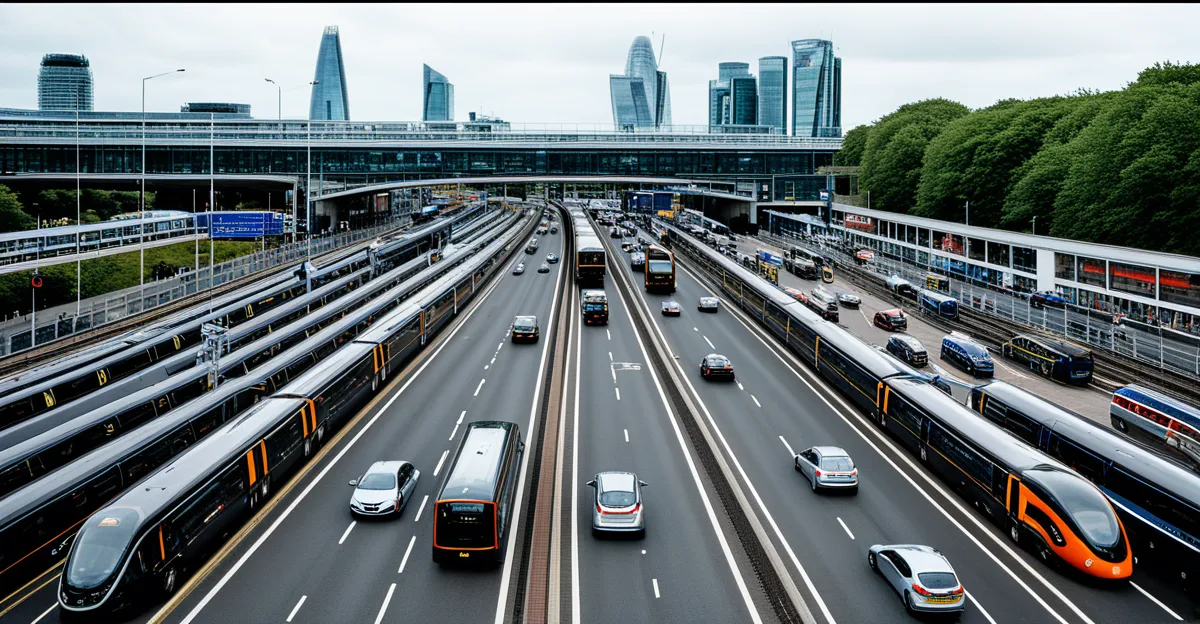UK Leadership in Transportation Innovation
The UK technology innovation landscape firmly positions the country as a global leader in the transportation advancements arena. Its robust UK transport sector blends cutting-edge research with practical applications, driving revolutionary changes in mobility. British engineers and tech companies consistently push boundaries, offering solutions that enhance both passenger and freight travel.
Recent examples highlight the UK’s commitment to reshaping movement dynamics. Innovations range from the integration of digital systems managing traffic flow to advancements in vehicle design enhancing efficiency. Notably, the UK’s sustained investment in research and infrastructure supports these breakthroughs, encouraging a collaborative ecosystem involving government bodies, academia, and private enterprises.
In the same genre : How is the UK tech sector influencing international cybersecurity standards?
Such progressive developments include smart transport networks that utilize real-time data to improve traffic management and reduce congestion. The emphasis on innovation spans across rail, road, and urban transport, reinforcing the UK transport sector’s status as a forefront player. These advancements not only boost economic performance but also enhance convenience and environmental outcomes, demonstrating the UK’s strategic role in pioneering sustainable, intelligent transport solutions.
Electric Vehicles and Clean Energy Solutions
The UK’s commitment to clean energy and sustainable transport UK is evident through progressive policies promoting electric vehicles (EVs). Government initiatives provide incentives for EV adoption, including grants and support for expanding charging infrastructure. This intentional growth of charging networks addresses range anxiety, a common barrier for consumers exploring electric vehicles.
Also to read : How Is the UK Leading in the Development of Green Technology?
British automakers and startups are pivotal in advancing electric vehicles with innovations in battery technology and vehicle design. For instance, improvements in battery density and charging speed directly enhance the practicality of EVs for daily use. Startups focus on creating affordable, efficient models aligned with the UK’s environmental goals, complementing larger manufacturers’ efforts.
The impact of this shift toward clean energy vehicles extends beyond the environment. Cities across the UK report notable reductions in urban air pollution, improving public health. This transformation aligns with the broader UK transport sector strategy to achieve net-zero carbon emissions. Sustainable transport UK investments not only mitigate climate change but foster economic growth by creating green jobs in emerging industries. Altogether, these efforts position the UK as a leader in integrating electric vehicles and clean energy into its future transport landscape.
Autonomous and Connected Vehicle Technologies
The UK is pioneering autonomous vehicles UK through extensive research and notable trials that push the boundaries of self-driving technology. Landmark projects, such as the testing of driverless cars on public roads, demonstrate the UK transport sector’s commitment to transportation advancements. These trials not only evaluate safety but also assess real-world integration challenges.
Central to this progress is the adoption of connected transport systems. By enabling vehicles to communicate with each other and roadside infrastructure, these technologies promote smart mobility solutions that optimize traffic flow and reduce accidents. Connected systems use sensors and data networks to anticipate congestion and adapt signals dynamically.
Moreover, the UK’s strategy emphasizes interoperability between autonomous and traditional vehicles, ensuring seamless coexistence. This foresight addresses public concerns about safety and enhances operational efficiency. Ultimately, these innovations aim to deliver a safer, more reliable travel experience while reducing emissions through smarter routing.
Data from pilot schemes highlight a reduction in collision rates and smoother traffic management, underscoring the practical benefits of connected and autonomous vehicle technologies. The UK’s proactive stance positions it at the forefront of evolving mobility solutions, fostering a transport ecosystem that is safer, more efficient, and intelligently integrated.
Public Transport Transformation and Infrastructure
The UK transport sector is undergoing significant upgrades to its transport infrastructure UK, focusing on modernizing public transit for the future. Innovations include advanced ticketing systems that use contactless payments and mobile apps, streamlining passenger flow and enhancing convenience. Real-time data integration enables travelers to receive accurate updates on bus and rail schedules, reducing wait times and uncertainty.
Investment in rail and bus networks emphasizes capacity expansion and accessibility, supporting sustainable urban growth. For instance, electrification projects reduce reliance on diesel engines, aligning with broader clean energy goals. Furthermore, infrastructure improvements facilitate faster, more reliable services and seamless connections across transport modes.
Collaboration between government bodies, tech firms, and local authorities plays a crucial role in these advancements. Smart cities initiatives incorporate transport data into wider urban systems, optimizing traffic flows and improving passenger experiences. This partnership-driven approach ensures that public transportation innovation not only increases efficiency but also caters to evolving commuter needs.
Together, these developments mark a transformative period in UK public transport, supporting both environmental targets and economic vitality through enhanced, user-focused infrastructure. The integration of new technologies exemplifies the UK transport sector’s commitment to pioneering transportation advancements and sustainable urban mobility.
Leading British Companies and Flagship Projects
The UK transport companies are instrumental in driving transportation advancements through innovative technologies and strategic collaborations. Leading corporations like major automotive manufacturers and technology firms consistently invest in research and development, focusing on electric drivetrains, autonomous systems, and connected infrastructure. Emerging mobility startups complement these efforts by developing niche solutions that address urban last-mile challenges and digital integration.
Flagship technology projects exemplify this leadership. For example, initiatives involving large-scale trials of driverless shuttles demonstrate practical applications in urban environments, while high-speed rail projects incorporate advanced signaling and energy-efficient designs. These pilot programs often result from partnerships between private firms, government agencies, and universities, fostering a robust innovation ecosystem within the UK transport sector.
Such collaborations accelerate the translation of research into commercial products, enhancing the UK’s reputation as a global hub for UK technology innovation. The focus on combining hardware and software expertise enables the country to address complex mobility challenges effectively. Moreover, the success of these projects attracts international attention and investment, reinforcing the UK’s strategic role in shaping the future of transportation worldwide.









